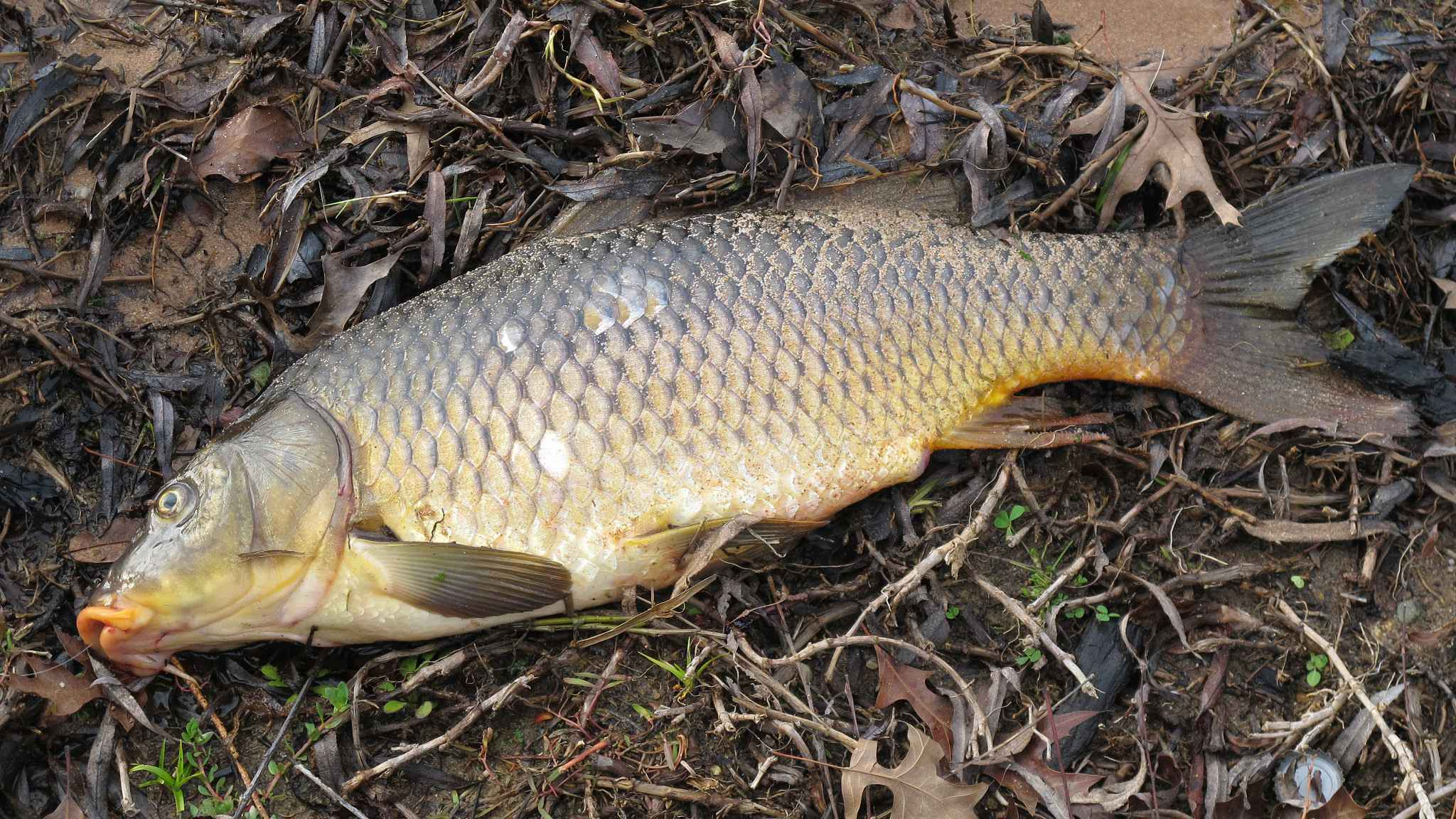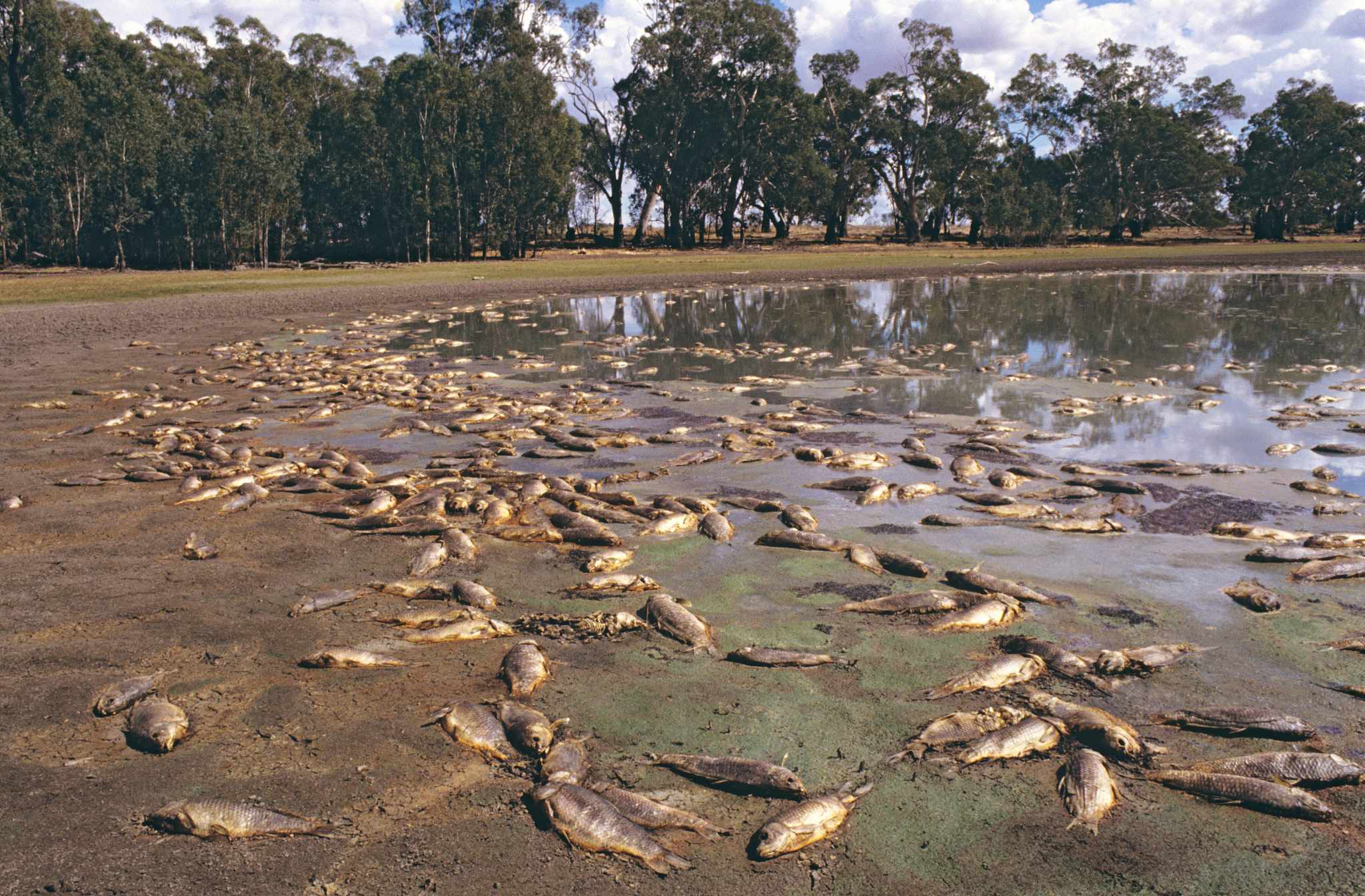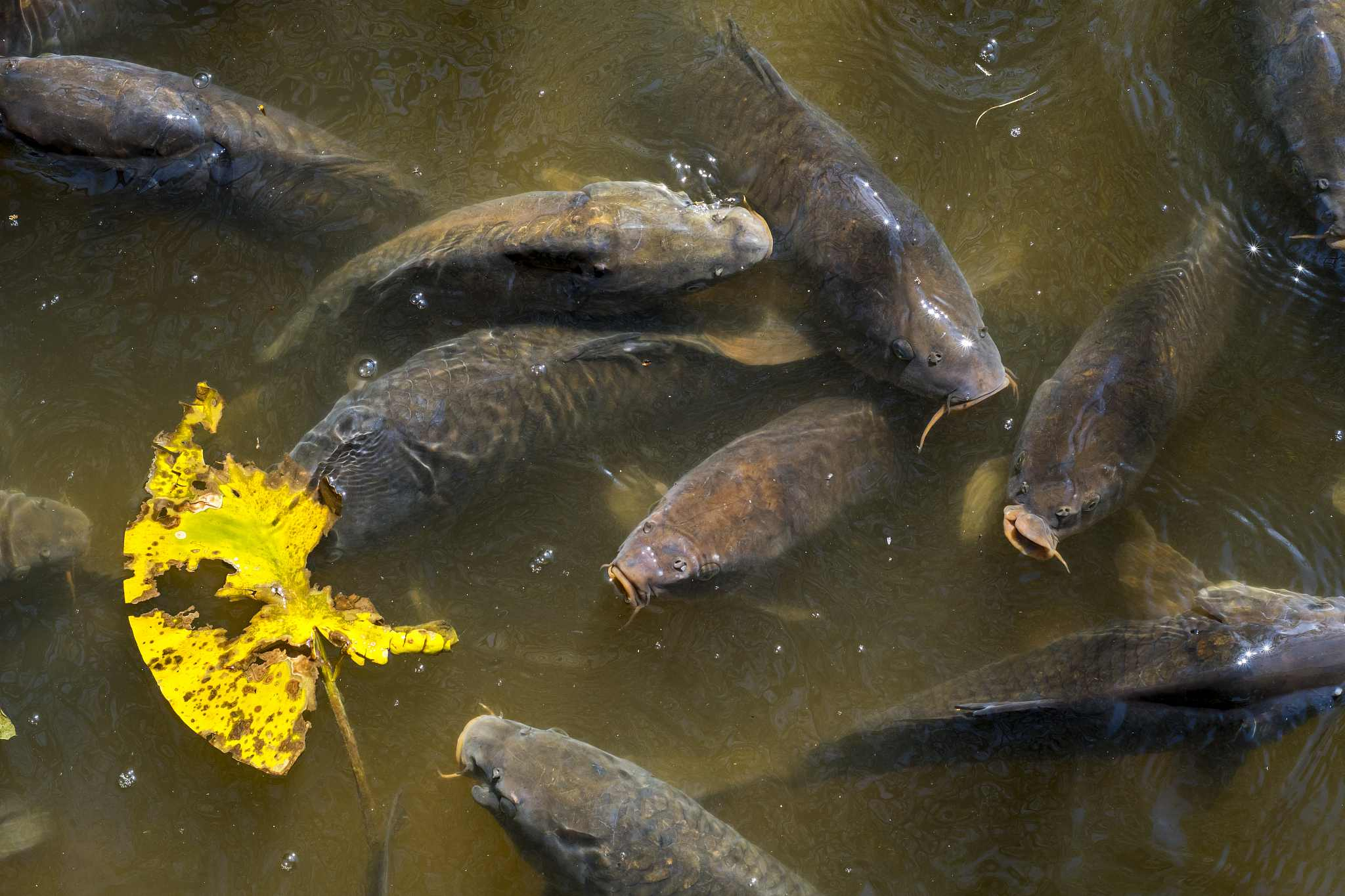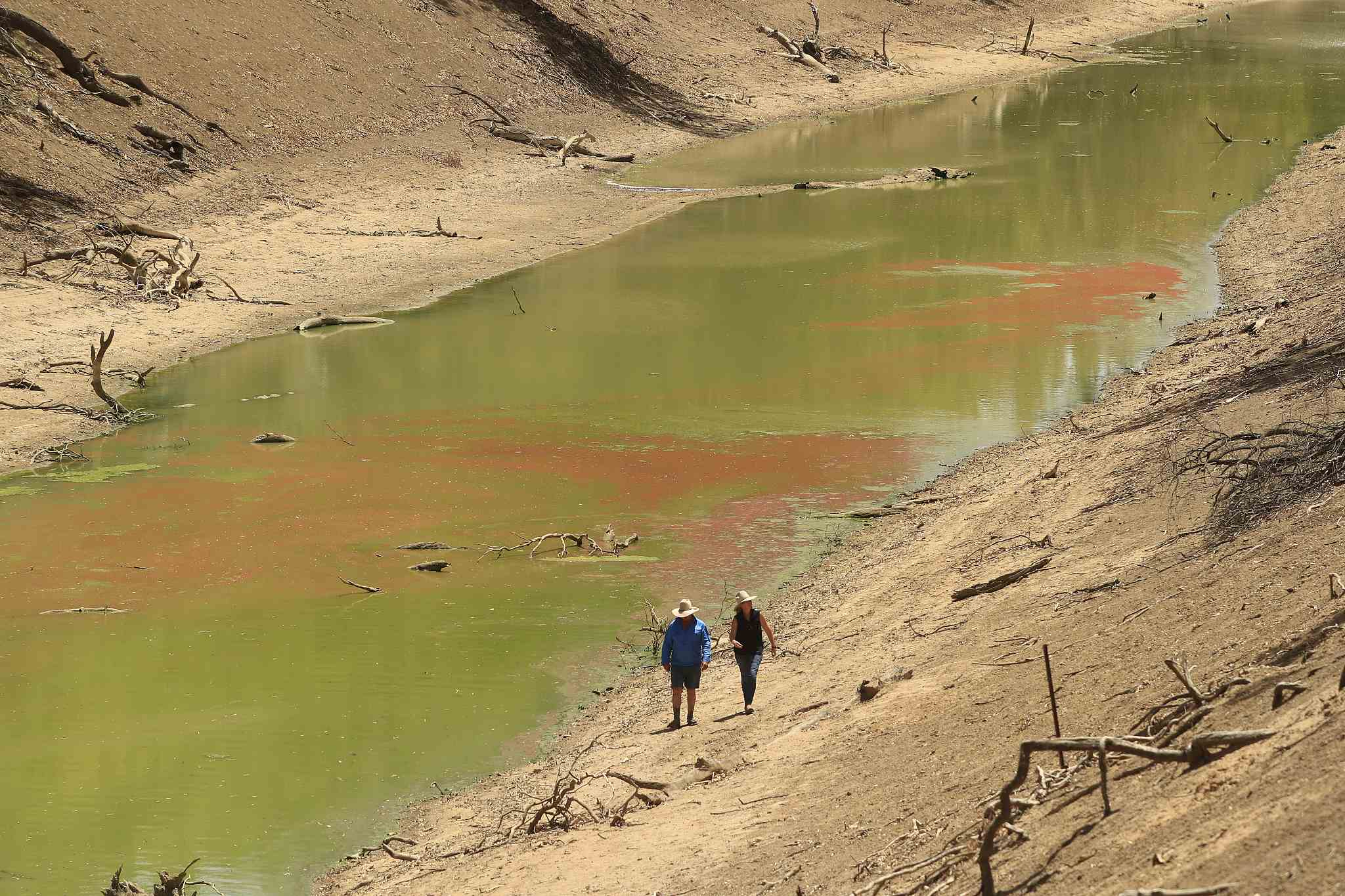
Environment
12:52, 30-May-2019
Scientists worry that proposed major fish kill could be devastating for Aussie river systems
CGTN

A planned mass cull of invasive fish in Australia could have devastating effects for the nation's waterways and cause waterbird population crash, scientists warned.
Heather McGinness, a senior scientist with the Commonwealth Scientific and Industrial Research Organization (CSIRO), told the Australian Broadcasting Corporation (ABC) on Monday that the National Carp Control Plan (NCCP) could cause "population crashes" among waterbird species.

European carp, also known as common carp, stranded in a billabong in New South Wales, Australia. /VCG Photo
European carp, also known as common carp, stranded in a billabong in New South Wales, Australia. /VCG Photo
If it goes ahead, the NCCP would see a herpes virus specific to carp released into waterways where the pest is considered detrimental to the environment.
However, McGinness said that releasing the virus at the wrong time of year could be devastating for waterbirds.
"When there is a big and sudden loss of a certain fish species, waterbird populations can have big population crashes and failed breeding events," she said.
"Carp, we think in some areas of the Murray Darling Basin, are now about 80 or 90 percent of the biomass of fish that are in our system and that's a huge percentage.

Shoal of Carps surfacing with big open mouths for air in a pond. /VCG Photo
Shoal of Carps surfacing with big open mouths for air in a pond. /VCG Photo
"It's highly likely that our waterbirds and other animals that consume fish have had to switch their diet and eat carp because their native fish diet has basically disappeared."
Carps were introduced in Australia more than 100 years ago. Because of their ability to spawn more than once a year and their high toleration for poor quality water, their population has skyrocketed in the last century. In 1974 and 1993, the heavy flooding of the Murray Darling Basin also helped the rapid spread of carp throughout the basin.
Invasive carp are a major problem in the Murray and Darling Rivers, which together make up the Murray-Darling Basin, the nation's most significant agricultural area.

The Darling River of the Murray Darling Basin. /VCG Photo
The Darling River of the Murray Darling Basin. /VCG Photo
Scientists have previously expressed concerns that a massive fish kill would cause the quality of water in the rivers to decline significantly.
"We do need more investigation into potential impacts on things other than fish and water quality... that includes fish consumers and things that live in the water that will be affected by this mass fish death," McGinness said.
"If you get a massive water quality decline that will affect things like crustaceans, mussels, and other invertebrates and those are also food sources for waterbirds."
(Cover image via VCG.)
(If you want to contribute and have specific expertise, please contact us at nature@cgtn.com.)
Source(s): Xinhua News Agency

SITEMAP
Copyright © 2018 CGTN. Beijing ICP prepared NO.16065310-3
Copyright © 2018 CGTN. Beijing ICP prepared NO.16065310-3